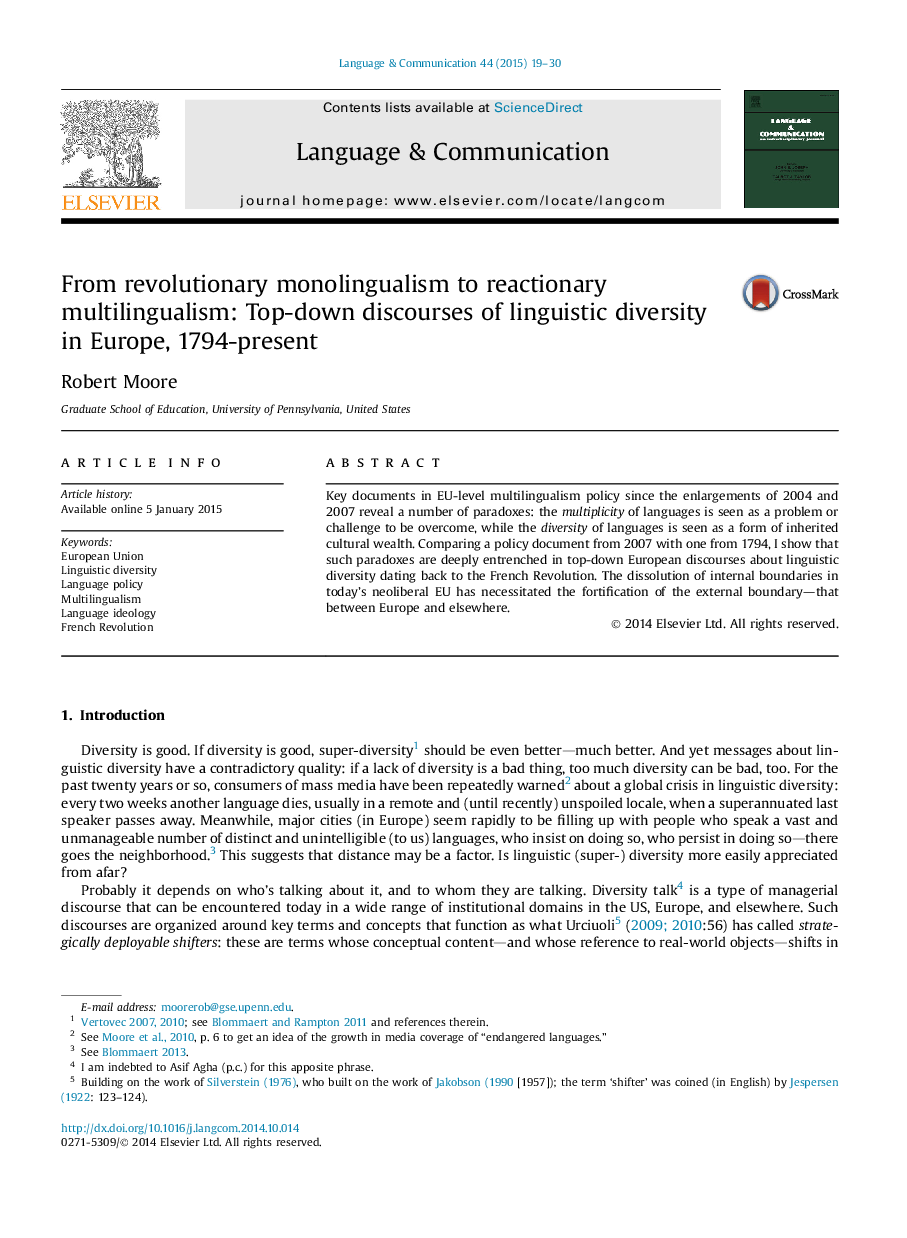| Article ID | Journal | Published Year | Pages | File Type |
|---|---|---|---|---|
| 934710 | Language & Communication | 2015 | 12 Pages |
•The EU today has a common currency but no single common language: is this a problem?•How can “the multiplicity of languages” be a problem, but “diversity” of languages a treasure?•How many languages should an ideal European citizen speak—and when should she speak them?
Key documents in EU-level multilingualism policy since the enlargements of 2004 and 2007 reveal a number of paradoxes: the multiplicity of languages is seen as a problem or challenge to be overcome, while the diversity of languages is seen as a form of inherited cultural wealth. Comparing a policy document from 2007 with one from 1794, I show that such paradoxes are deeply entrenched in top-down European discourses about linguistic diversity dating back to the French Revolution. The dissolution of internal boundaries in today's neoliberal EU has necessitated the fortification of the external boundary—that between Europe and elsewhere.
